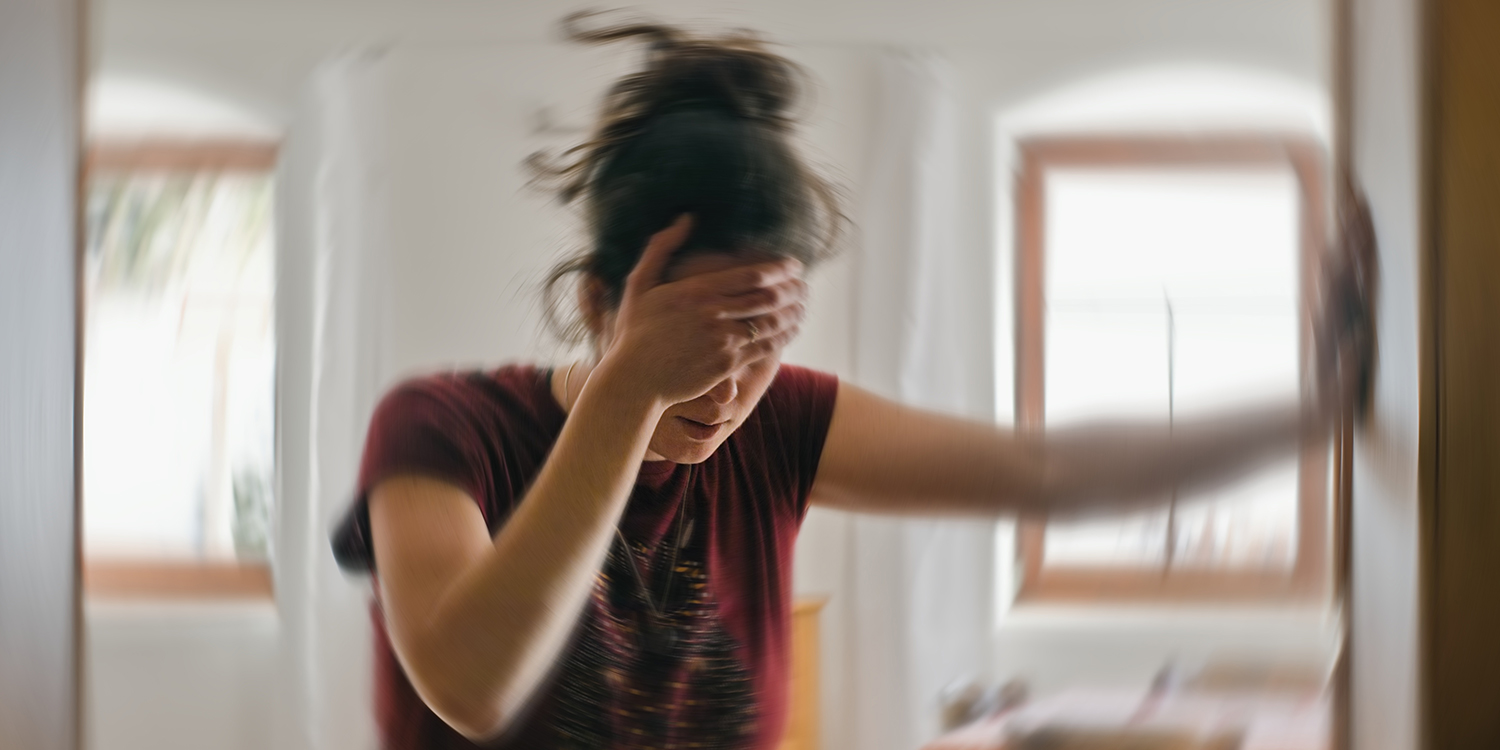In today’s fast-paced world, anxiety has become one of the most common mental health challenges, affecting people across all age groups and walks of life. Rising work pressures, academic stress, and even constant exposure to social media have contributed to a sharp increase in anxiety disorders across all age groups, often impacting daily routines, relationships, and overall well-being. At Graphic Era Hospital in Dehradun, we understand how deeply anxiety can affect daily life and overall well-being. Our team of experienced psychiatrists and psychologists provide specialised care through therapies such as Cognitive Behavioural Therapy (CBT), personalised counselling, and medication when required. Our approach is designed to ensure comfort, confidentiality, and long-term recovery, helping patients manage anxiety effectively and regain balance, confidence, and peace of mind.
What is an Anxiety Disorder?
Whether before an exam, a job interview, or a big decision, everyone feels anxious from time to time. This kind of short-term worry is normal and usually goes away once the situation passes. An anxiety disorder, however, is different. It is a recognised medical condition where feelings of fear, worry, or tension become constant, overwhelming, and difficult to control. Anxiety disorders can interfere with work, studies, relationships, and day-to-day life.

At Graphic Era Hospital, we help patients understand that anxiety is not a weakness but a treatable mental health condition. With the right diagnosis and timely treatment, most people can manage symptoms effectively and regain control of their lives.
Types of Anxiety Disorders
Anxiety does not look the same for everyone. There are different types of anxiety disorders, each with its own symptoms and challenges. At Graphic Era Hospital, our anxiety disorder specialists identify the type of anxiety so that treatment can be personalised for each patient. Types of anxiety disorder include:
- Generalised Anxiety Disorder (GAD): Persistent and excessive worry about everyday situations, often accompanied by restlessness, fatigue, or difficulty concentrating.
- Panic Disorder: Sudden, intense episodes of fear or panic attacks, often with chest pain, sweating, trembling, or a feeling of losing control.
- Agoraphobia: Fear of situations where escape may be difficult, such as crowded places, public transport, or being outside alone.
- Social Anxiety Disorder: Extreme fear of being judged or embarrassed in social situations, leading to avoidance of gatherings or interactions.
- Separation Anxiety Disorder: Intense fear or distress when separated from loved ones, seen in both children and adults.
- Selective Mutism: A condition often seen in children, where they can speak in comfortable settings but remain silent in certain social situations.
Symptoms of Anxiety Disorders
Anxiety affects not just the mind but also the body and behaviour. Recognising these symptoms early can help in seeking timely treatment. At Graphic Era Hospital, we guide patients to identify different signs of anxiety so they can be addressed effectively. Common symptoms include:
Emotional symptoms
- Constant worry or fear that feels overwhelming
- Irritability or restlessness
- Difficulty concentrating or feeling “on edge”
Physical symptoms
- Rapid heartbeat or palpitations
- Shortness of breath or chest tightness
- Nausea, sweating, or dizziness
- Headaches, fatigue, or muscle tension
Behavioural symptoms
- Avoiding social situations or daily responsibilities
- Difficulty sleeping or frequent nightmares
- Dependence on reassurance from others
- Reduced ability to perform at work, school, or in personal life
Diagnosis of Anxiety Disorders at Graphic Era Hospital
Diagnosing anxiety requires more than just recognising symptoms. At Graphic Era Hospital in Dehradun, our psychiatrists and psychologists use a structured approach to understand the root cause of each patient’s condition. This helps in creating a personalised treatment plan. Steps in diagnosis include:
- Psychological evaluation: A detailed discussion about thoughts, feelings, behaviour patterns, and daily challenges.
- Anxiety tests or screening tools: Standardised questionnaires to measure the severity and type of anxiety.
- Medical history review: Identifying family history, past health issues, or medications that may influence symptoms.
- Ruling out other conditions: Tests to exclude physical problems such as thyroid disorders or heart conditions that can mimic anxiety symptoms.
Treatment Options for Anxiety Disorders
At Graphic Era Hospital, anxiety disorder treatment is designed to address both symptoms and underlying causes. Our specialists combine medical care, therapy, and lifestyle guidance to help patients achieve long-term recovery. Treatment options include:
- Psychotherapy (Counselling and CBT): Cognitive Behavioural Therapy (CBT) and other counselling techniques help patients identify negative thought patterns, manage fears, and develop healthier coping strategies.
- Medication: Anti-anxiety medicines or antidepressants may be prescribed when symptoms are severe or interfere with daily life. These are used under close medical supervision for safety.
- Treatment Without Medication: For many patients, therapy and lifestyle changes alone are effective in managing anxiety.
- Lifestyle and Anxiety Management Techniques: Stress reduction methods such as yoga, meditation, breathing exercises, and regular physical activity support recovery.
- Specialised Care for Children, Men, and Women: Treatment plans are personalised, recognising that anxiety can affect each group differently.
- Combined Treatment for Anxiety and Depression: Integrated care is provided for patients experiencing both conditions together.
When to See a Psychiatrist or Psychologist for Anxiety
It is normal to feel anxious in certain situations, but when anxiety becomes constant and starts to interfere with daily life, professional help is needed. At Graphic Era Hospital, we recommend consulting a specialist if you experience:
- Persistent worry, restlessness, or panic attacks
- Anxiety that affects work, studies, or relationships
- Physical symptoms such as chest pain, shortness of breath, or frequent nausea linked to stress
- Trouble sleeping or repeated nightmares due to anxiety
- Signs of depression occurring along with anxiety
- Avoidance of social situations or daily responsibilities
- Anxiety that does not improve with self-care or lifestyle changes
Why Choose Graphic Era Hospital for Anxiety Treatment in Dehradun?

Causes and Risk Factors of Anxiety Disorders
Anxiety disorders develop from a mix of biological, psychological, and environmental factors. At Graphic Era Hospital, we help patients understand these causes so that both treatment and prevention strategies can be tailored to their needs.
Possible causes of anxiety disorders
- Chemical imbalances: Changes in brain chemicals that control mood and emotions.
- Brain changes: Areas of the brain involved in fear and stress may function differently.
- Genetics: Anxiety can run in families, increasing the risk for some individuals.
- Environmental factors: Stressful life events, childhood trauma, or ongoing pressures like work and studies.
Risk factors for anxiety disorder
- Family history of anxiety or other mental health conditions
- Personality traits such as being highly self-critical or shy
- Long-term illnesses such as thyroid problems or heart conditions
- Substance abuse, including alcohol or drugs
- Ongoing stress from relationships, finances, or academic/work challenges
Top Anxiety Treatments at Graphic Era Hospital
- Cognitive Behavioural Therapy (CBT)
- Psychotherapy and Counselling
- Medication for Anxiety Disorders
- Lifestyle and Anxiety Management Techniques
- Treatment for Anxiety Without Medication
- Integrated Care for Anxiety and Depression
Blog
Frequently Asked Questions
What is an anxiety disorder and how is it diagnosed?
An anxiety disorder is a medical condition where worry and fear become constant and interfere with daily life. At Graphic Era Hospital in Dehradun, diagnosis involves psychological evaluation, anxiety screening tests, and ruling out other medical conditions.
What are the common symptoms of anxiety?
Symptoms include persistent worry, restlessness, irritability, shortness of breath, rapid heartbeat, nausea, poor sleep, and avoidance of social or daily activities.
Can anxiety and depression occur together?
Yes. Many patients experience both conditions at the same time. At Graphic Era Hospital, our specialists provide integrated care to treat anxiety and depression together.
Can anxiety be treated without medication?
Yes. Treatments such as Cognitive Behavioural Therapy (CBT), counselling, meditation, and lifestyle changes can often help manage anxiety without medication, depending on the severity.
Which is the best hospital near me in Dehradun for anxiety treatment?
Graphic Era Hospital is among the best hospitals in Dehradun for anxiety treatment, with experienced psychiatrists and psychologists offering therapy, counselling, and safe medical treatment when required.
How long does anxiety treatment take?
The duration depends on the type and severity of the disorder. Some patients feel improvement within weeks of therapy, while others may require longer-term treatment and support.
What lifestyle changes can help reduce anxiety?
Regular exercise, yoga, meditation, breathing techniques, balanced sleep, and limiting caffeine or alcohol can help reduce anxiety symptoms.
Should I consult a psychiatrist or psychologist near me in Dehradun for anxiety?
Both can help. Psychologists provide therapy and counselling, while psychiatrists can prescribe medication when necessary. At Graphic Era Hospital, patients are guided to the right specialist based on their needs.
Which is the best hospital near me in Dehradun for anxiety treatment?
Graphic Era Hospital in Dehradun is a trusted choice for anxiety treatment, offering therapy, counselling, and medical care under one roof.
Does Graphic Era Hospital provide anxiety treatment and counselling?
Yes. We offer both therapy and medical treatment for anxiety at our hospital in Dehradun, with a focus on confidentiality and patient comfort.


